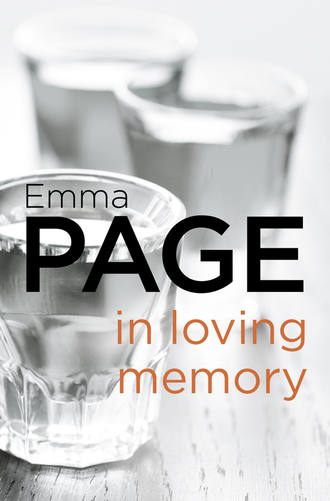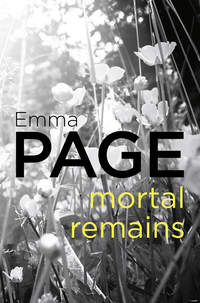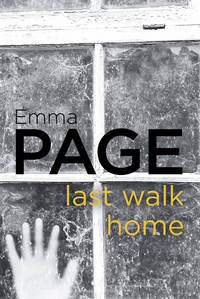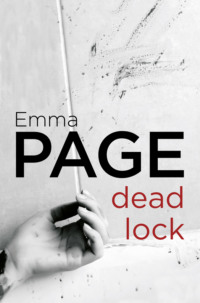
Полная версия
In Loving Memory
‘Have a good journey,’ he said, and replaced the receiver.
A few minutes later Kenneth Mallinson picked up his overnight bag and let himself out of the flat. No wife to smile a farewell on the threshold. He had never felt the impulse to marry. The deep channels of his emotions had always been directed towards his mother, the youthful energies of his affections had spent themselves in trying to ease the silent unhappiness of her existence, to make up to her in some tiny measure for the huge error of her marriage to Henry Mallinson, a man whose cold strong nature could not even begin to comprehend how a woman with a warm and loving nature might shrivel and wither from simple lack of the caressing hand of love.
It had taken Kenneth years to recover from his mother’s death – if he had ever truly recovered. He had come in the end to accept the fact that she was gone, that things hadn’t after all come right for her, that she had died at last from nothing more complicated than a broken heart. By the time he had contrived to construct a shield of armour around his inner turmoils, he was approaching forty and as far as marriage was concerned it was already too late.
He eased the car out on to the main road and pointed it towards the south, towards Rockley and Whitegates. I suppose I’ll have to see David, he thought, staring out through the windscreen. And that wife of his, Carole.
He had seen the photographs in the newspapers, the pretty, fair-haired girl standing demurely smiling beside her new husband. Father would like a daughter-in-law like that, he thought, a quiet, compliant girl, one who would fall in with his wishes, play her part in the Mallinson scheme of things, provide him in due course with grandchildren to carry on the family business long after he was dead and gone.
The early-morning traffic began to thicken. As he drove through the outskirts of a town he saw the first sleepy shopkeepers beginning to raise the blinds, to attack the windows with wash-leathers and buckets of water.
‘Thirty pounds!’ Tim Jefford stared at the proprietor of the tiny shop with horrified disbelief. ‘Thirty pounds for one miserable coin!’
‘Guineas,’ said the proprietor smoothly. ‘Thirty guineas. You won’t do better elsewhere. Fine condition and a rarity of course. You’d be hard put to it to find another like it in the whole of London.’ He didn’t waste time addressing the wild-looking young man as Sir. Hardly likely that a fellow like that, greasy jeans and a shirt very little acquainted with the wash, would spend thirty guineas on a Roman coin. He yawned delicately into his hand.
‘Twenty-five pounds,’ Tim said desperately. ‘Not a penny more.’ No use in buying anything cheaper, the coin had to be a rarity if it was to serve any purpose at all.
The shop-keeper flicked up his eyes with new interest.
‘Twenty-seven pounds ten,’ he said briskly.
‘Twenty-five,’ Tim repeated, regretting now that he hadn’t started bidding at twenty. ‘I’ve only got twenty-five.’
‘Twenty-five it is,’ the shop-keeper said at once, recognizing the truth when he heard it. The fellow thrust his hand into the pocket of his jeans and drew out a fistful of notes, a scattering of coins. When he had counted out the money there were only the coins left on the counter, a few shillings at most. Paint-stains on the long fingers with their grimy nails. A sudden access of sentimentality took the shopkeeper by surprise, carrying him back all at once to the far-off days of his own youth, to his stall in the street market, his poverty-stricken cronies for ever dabbing at canvases with oils, for ever tapping out their immortal novels on ancient typewriters, hacking in unquenchable optimism at great lumps of stone.
‘You can have it for twenty-two pounds ten,’ he said abruptly, astounded at his own folly. The fellow looked as if he hadn’t eaten three good meals a day since he’d left home, whenever that might have been.
Tim snatched back the two pounds ten before the shopkeeper could change his mind.
‘Thanks,’ he said with a grin. ‘You’ve saved my life. Could you put the coin in a box? Something impressive-looking?’
The man nodded and groped on the shelf behind him, restraining himself with difficulty from enquiring why his customer should be willing to spend every pound he had on a coin of a long-dead empire.
And now for the public library, Tim thought, standing on the pavement again. A book about coins, two or three books perhaps. He’d have to study them on the way to Rockley, pore over them in his room at the pub, if he was going to be able to make any kind of showing with old Mallinson.
He walked along the busy street, whistling. A dark grey suit – he knew a lad who still had a dark grey suit, hadn’t yet parted with it for a few pounds to a second-hand shop. And he knew where he could borrow a couple of near-white shirts. And a decent suitcase. Pyjamas, he remembered suddenly. Better have a pair of pyjamas. He frowned and ceased his whistling. He’d better try and lay hands on a dressing-gown too.
He glanced down at his shabby shoes. A dead giveaway those shoes. He let out a long breath of dismay. Things were getting a trifle more complicated than he’d bargained for. Who on earth did he know with a newish pair of shoes? And a second pair to wear while he lent Tim the newish ones? One of his friends might know some college kid, some lad still with the remnants of his parent-bestowed wardrobe. He couldn’t afford to be too fussy about the size.
His face took on a grim expression as he turned into the public library, envisaging the long agony of the next few days with his tortured feet squeezed into size seven or slopping awkwardly around in number tens.
Life isn’t merely a battlefield, he thought, going up to the crowded shelves. It’s a ruddy massacre.
CHAPTER 4
‘I HAVE TIME for a quick cup of coffee,’ Richard Knight said, smiling at Gina. He would never do more than smile at her in front of the maid who had answered his ring at the door and who was still hovering in the hall, giving the secretary an enquiring glance. The servants at Whitegates were by now all quite certain that romance was brewing between Miss Thorson and Dr Burnett’s young partner. They viewed the developing situation without envy, with interest and pleasure. A pleasant young woman, Gina Thorson, one who had seen hard times somewhere, not a girl to give herself airs with the domestic staff – not like Mr David’s wife up at Tall Trees, who fancied herself more than somewhat in spite of the fact that she had apparently sprung from nowhere at exactly the right moment to catch Mr David and marry him.
‘Could we have some coffee, please?’ Gina smiled at the maid, making an ally of her, as was her way. ‘Dr Knight hasn’t much time.’
‘Certainly, Miss Right away.’ The girl disappeared in the direction of the kitchen quarters.
‘I’m just off on my rounds,’ Richard said. He slid an arm round Gina’s waist and dropped a light kiss on her cheek. She was aware as always of a slight distance between them. Until his ring was actually on her finger he would always treat her with a trace of reserve and formality. ‘How’s the old man?’ he asked, walking up to the great fireplace and looking down at the logs burning in the grate.
Gina followed him. ‘He seems to be doing very well. He’s getting restless, I suppose that’s a good sign.’ Richard gave a little nod. ‘Doctor Burnett was in earlier this morning, Mr Mallinson was pestering him to let him get up.’
Richard raised his head. ‘And is he going to let him?’
‘Yes, for a very short time this afternoon, Mrs Parkes said. Just to sit in a chair in his room. I don’t suppose that will satisfy him for long, though.’
The maid came in with the tray of coffee. Gina began to pour it out. ‘Kenneth Mallinson is here,’ she said. ‘Did you know?’
‘I knew he’d been sent for, I didn’t know whether or not he’d arrived.’
Gina handed him a cup. ‘He got here about ten minutes ago. I didn’t see him, Mrs Parkes told me he was here.’ She inclined her head towards the curving stairs. ‘He’s up there now, with his father. Doctor Burnett said he could have visitors, provided they didn’t stay too long or excite him in any way.’
Richard stirred his coffee thoughtfully. ‘I should have thought seeing his elder son again, after all these years, might be rather distressing. I don’t know that I would have allowed it at such an early stage.’
‘Oh but you see, Mr Mallinson particularly wanted to see him, he asked Doctor Burnett to send for him as soon as he was taken ill. It would have upset him far more if the visit hadn’t been allowed.’
Richard began to drink his coffee. ‘Yes, I suppose so. In any case Burnett knows what he’s doing. He’s a very sound man and of course he knows everyone here for miles around, knows all the family ins and outs, the feuds and alliances. It all helps when you’re trying to do what’s best for a patient.’
‘Has he always practised here?’ Gina asked. ‘I would have imagined a clever doctor like that would have been tempted away to a city, or a big hospital somewhere.’ She knew that Richard himself was only putting in a year or two with Dr Burnett, his sights were set on broader horizons, Rockley would not hold him for ever.
‘He was born here,’ Richard said. ‘He’s a man who sends down deep roots, a man with strong loyalties. But he did leave Rockley, he spent the greater part of his working life up north, in an industrial area of Yorkshire, I thought you knew that.’
Gina laid down her cup and stared at him in surprise. ‘No, I had no idea. I thought he’d always practised here. I had the impression – from the servants, I suppose – that he’d been here for years and years. Mr Mallinson always treats him as if they’ve known each other all their lives.’
‘They have, in a way. They were boys together in Rockley. Poor boys, both of them. Whitegates was owned by a county family then. Henry Mallinson’s father was a groom and Dr Burnett’s father was the gardener here at Whitegates. He was born in that cottage where the Fosters live now. They were bright lads, both of them. Mallinson came up the hard way, using his brains and hands to build up the business, Burnett read books and won scholarships. He came back here to practise after he qualified. Then, when he was about thirty or thirty-five, he went off to Yorkshire and didn’t come back till about ten years ago. I suppose he found he was growing old, thought he’d like to end his days where he was born. Not an uncommon wish.’
‘Did he never marry?’ Gina spoke the words with a trace of hesitation, hoping that Richard wouldn’t think she was sending out a feeler of any kind. Marriage had never been mentioned between them, but she knew that he had considered it, that during their visit to his home he would make up his mind.
Richard shook his head. ‘No, not so far as I know. He certainly never mentions a wife and I’ve never heard that he married. Rather surprising really, when I come to think about it. A wife is very useful to a doctor, most doctors marry. And Burnett, in particular, I would have thought he was the type to fall in love deeply and permanently.’ He laid down his cup. ‘By the way, Gina, I haven’t pressed you, but are you coming with me? Next month, when I go home? I’d like you to meet my parents, I’d like it very much.’ He gave her a level, direct, unsmiling look. ‘It’s important to me.’
She felt her heart give a sharp leap. ‘I’d like to, Richard, I’d be very pleased to. It’s only—’ She broke off and bit her lip.
‘Only what? What silly notion have you got into your head?’
It was utterly impossible for her to open her mouth and mention such a ridiculous trifle as her clothes. A man would never understand, and particularly a man like Richard. He would brush the words aside with impatience. But it does matter, Gina thought, it matters a lot to make the right impression. With the right clothes, I’d feel at ease, adequate, able to hold my own, however grand his parents are.
‘They mightn’t like me,’ she heard herself say, and was instantly depressed at the stupidity, the childishness of the remark. ‘I’m no one,’ she said, plunging even deeper into foolishness. She abandoned all pretence and let the words come out in a rush. ‘I’ve no family, no background. Your parents are well-to-do, they live in a big house, they’d wonder why on earth you bothered to bring home a girl like me.’ It was out, she’d said it. She closed her eyes for an instant in despair.
A moment later she was astounded to hear Richard laugh. A deep amused laugh, echoing round the hall. She jerked her eyes open.
‘You silly child!’ He bent down and put his arms round her, kissed her lightly and firmly on the mouth.
‘You’re someone very special, to me,’ he said, suddenly serious again, looking down into her eyes. ‘Don’t ever let me hear you talk such nonsense again. My parents will love you – as I do.’
‘Oh, Richard—’ Upstairs she heard a door open and close. She pulled back from his arms and glanced nervously towards the stairs.
‘It’s all right,’ he said in a low voice. ‘There’s no need to act like a startled fawn.’ But his manner resumed its customary trace of formality. ‘I take it you’ll be coming with me, then? If your objections are nothing more serious than that?’
She drew a deep breath. ‘All right, I’ll come.’
He patted her hand. ‘Good girl, I knew you’d see sense.’ He glanced at his watch. ‘Now I really must be off or my patients’ relatives will all be ringing the surgery to find out where I’ve got to.’
She went with him to the door. ‘I’ll phone you,’ he said. ‘This evening or tomorrow, it depends how I’m fixed. We’ll go out and have a meal together as soon as I can manage a couple of hours off.’ He brushed her cheek with his lips and was gone.
Gina closed the door and stood with her back to it, her hands clasped together. I will go, she thought, and I’ll be a credit to him. I’ll get the suède coat and the skirt and the sweater. Shoes, bag and gloves. I’ll get them all. Somehow. I’ll look poised, elegant, suitable. I won’t let Richard down. She unclasped her hands, stood up very straight and looked up at the stairs towards the corridor beyond, towards the room behind whose door old Mr Mallinson lay.
‘Doing very well indeed,’ Kenneth Mallinson said. ‘Still plenty of room for expansion of course.’ He gave a little smile. ‘We’re not in the same class as you, not by a long chalk, but our balance sheet is pretty healthy.’
Henry Mallinson put the tips of his fingers together. ‘No, I don’t suppose you are in the same class as me. Took me fifty years to build the firm up. And things were different then. More opportunity for a young man with vision. Not so many rules and regulations, taxation wasn’t so crippling.’ He looked back into the past for an instant with pleasure, remembering the old days, the struggles, the triumphs, the near-disasters. He gave a little smiling sigh, wishing it was all to do again, that he could turn back the clock and start the whole long battle all over again.
‘There isn’t a thing I’d do differently,’ he said suddenly, following his own train of thought. ‘Not a thing.’ He’d enjoyed every moment of it, the difficulties and conflicts, perhaps those most of all.
‘Nothing?’ Kenneth asked in an altered tone. He wasn’t thinking of the business, he was thinking of his mother, of her spirit bruised and crushed over the long years of marriage to a man whose first and only thought was for the firm he had reared with so much toil and sweat. He was thinking of his own quarrel with his father and the years of silence. ‘Nothing at all?’
Henry Mallinson raised his eyes. ‘Not a thing,’ he said. ‘I’d do it all again exactly as before.’
Kenneth stood up and walked over to the window. He stood looking down at the sweep of lawn, at Foster kneeling by a bed, patting the earth around a plant. One learns nothing from the past, he thought, one learns nothing from one’s mistakes, we are all bounded inexorably by the limitations of our own natures. Myself as well as other men. He felt suddenly and acutely depressed.
‘You’re quite settled up north, then?’ his father’s voice asked. He didn’t add, ‘Not thinking of getting married one of these days?’ It wouldn’t have occurred to him to ask. A confirmed bachelor, his elder son, he would retreat year by year further into his shell, growing more solitary, more self-sufficient. Any grandchildren Henry Mallinson might hope for must be looked for elsewhere. The firm would not be carried on, nurtured and served by any descendants of Kenneth’s. ‘You’ve given up all notion of coming back here?’ He didn’t say, ‘Of coming home.’ Whitegates was no longer home to Kenneth, hadn’t been home to him since the day he’d followed his mother to Rockley churchyard where she lay at last in peace, beyond unhappiness, beyond the possibility of pain.
Kenneth turned from the window. ‘I don’t know,’ he said with an air of lightness. ‘I haven’t totally ceased to consider it.’ His own business concern might go bust in a matter of days. He had to keep the door open, he might be very glad indeed to creep back to Rockley and make a niche for himself in the family business. But what kind of a niche would it be? Would David even contemplate relinquishing command? He gave a fractional shake of his head at the notion. No, David would not contemplate it. He would take very great pleasure in assigning his elder brother to some inferior position, in issuing orders and waiting for them to be carried out.
I couldn’t do it, Kenneth thought. But reality stared back at him implacably. He might have to do it, there might be no other conceivable course.
‘There’s always room for a little more capital in a growing concern,’ he said, smiling at his father. ‘I don’t have to tell you that. Do you fancy a sound investment? I could offer you very good terms.’ He smiled again, a shade less cheerfully. ‘Seeing it’s one of the family.’
His father gave him a long shrewd look. What was it about his elder son that had always irritated him? Why had he been content to turn his affairs over to David, without resentment, without perpetual fault-finding and interference, when he had been totally unable to leave Kenneth alone for one single day to run the firm as he thought best? He didn’t know, and he would never know now, it was by many a long year too late to find out.
‘I wasn’t altogether fair to you in the past,’ he said slowly. He saw Kenneth’s eyes jerk open at such an acknowledgment.
That’s how he sees me, Henry thought, a man who could never admit to a mistake. But we change when death looks us in the face, not by very much perhaps, but we change all the same.
‘There was never enough time,’ Henry said without regret. ‘Never enough time to look at every aspect of living.’ An apology of sorts. As much as he could ever bring himself to utter. It would have to do.
Kenneth looked down at his father. It crossed his mind for an instant that he could reach down and touch his father’s hand, pale and oddly fragile-looking, the fingers extended against the coverlet. But he remembered his mother lying there in Rockley churchyard and the impulse passed.
‘I’d like to put a little money into your business,’ his father said. He gave a brief smile. ‘I’d like to diversify my interests. What figure did you have in mind?’
Kenneth drew a deep breath. ‘Twenty-five thousand,’ he said without emotion. Might as well allow a margin. ‘Thirty if you prefer. It can all be gone into.’
‘I’ll speak to my solicitor. He can look into it. How long will you be staying?’
Kenneth took a pace or two about the room. Impossible to stand still now when relief flowed violently through his limbs.
‘As long as you wish. My junior partner is a very sound man, he can carry on till I get back.’ I’ll phone him the moment I get to the pub, he thought. I’ll tell him it’s all right about the loan, he can turn that job down now. With immense difficulty he restrained himself from laughing aloud, so great was his sense of release.
‘A few days then,’ his father said. ‘I know what business is, you can’t stay here for ever.’ He flung him a glance that held a trace of appeal. ‘You’ll be down again, I imagine. Before very long.’
‘Oh yes, I’ll be down again. It isn’t all that long a run in the car.’ Strange to contemplate the notion of being on visiting terms at Whitegates. He’d have to put things on to some kind of acceptable footing with David and his wife. Matters would have to be handled very delicately there.
‘My solicitor can draw up a new will while he’s about it,’ Henry Mallinson said, almost off-hand. ‘The present one cuts you out, I imagine you realized that?’
Kenneth inclined his head. ‘Yes, I realized that.’
‘You’re my elder son,’ his father said. ‘No getting away from that.’ At the end of life the ties of blood assumed immense importance, a significance he hadn’t altogether bargained for. ‘No getting away from that,’ he said again, heavily, and closed his eyes. ‘I’m tired now, I think I’d better rest. I’m old, Kenneth, really old.’ He opened his eyes, wearily. ‘I never thought it would happen to me. The years go by. You know it happens to other people. But you never imagine it will happen to you.’
Even now Kenneth couldn’t bring himself to take his father’s hand. Later perhaps, in a day or two, before he left Rockley. But not just yet. He couldn’t stretch out a hand and destroy the past all in a moment. Not just yet.
‘I’ll go then,’ he said, moving towards the door. ‘Is there anything you want?’
Henry closed his eyes. His face looked peaceful, infinitely weary. ‘Send Mrs Parkes along. I’ll get her to see about the solicitor. Later on today perhaps. Might as well strike while the iron’s hot.’ While there’s still time, he added in his mind, time to put things right, in some measure at least. ‘You’ll be staying here?’ His eyes came open again, slowly. ‘In the house?’
Kenneth shook his head. ‘No, I’ll get a room at the pub. It’ll be less bother for the servants.’
‘Just as you wish.’ So he isn’t ready to forgive yet, Henry thought, not altogether with surprise. The Mallinson blood ran in Kenneth’s veins and no Mallinson forgave easily, at the first sign of an outstretched hand. He heard the door close quietly. He raised a hand to his face and found to his astonishment that his lids were moist with tears.
Kenneth walked slowly towards the stairs with his mind in a tumult of conflicting thoughts and emotions. The wave of relief which had washed over him in the bedroom was subsiding now. It isn’t going to be as simple as it seemed in that first moment, he thought. Father is no fool about money and the solicitor is even less of a fool – if that is possible. Twenty, twenty-five, thirty thousand pounds, that kind of money wasn’t going to be invested without searching enquiries and the most casual enquiry would elicit the fact that Kenneth’s business was standing on the very edge of bankruptcy. Oh yes, with a good lump sum of capital he was absolutely confident that he could set the firm on its feet again, that it would go forward soundly and smoothly. But to convince his father of that – and his father’s solicitor? Another matter altogether.
He put a hand on the banister, staring down at his feet moving one after the other, a single step at a time, reluctant now to carry him towards that phone. Just what was he going to tell his partner?
There is the new will, some insistent part of his mind said clearly. Drawn up today, signed tomorrow, in all probability. The whole family fortune split down the middle between himself and David. Father looked tired and old, he thought, striving to suppress pity, he looked like a man who could not last many months, many weeks – or even many days.
His fingers gripped the rail tightly. If his father were to die quite soon, inside a week, say, there need be no investigation about a loan. He could either shore up the firm with another loan from the bank till his father’s estate was paid out, or he could simply let the firm go bust, sit back and wait for probate, secure in the knowledge that he need never again lift a finger unless he wanted to. And his father had looked so weary, so ill …








